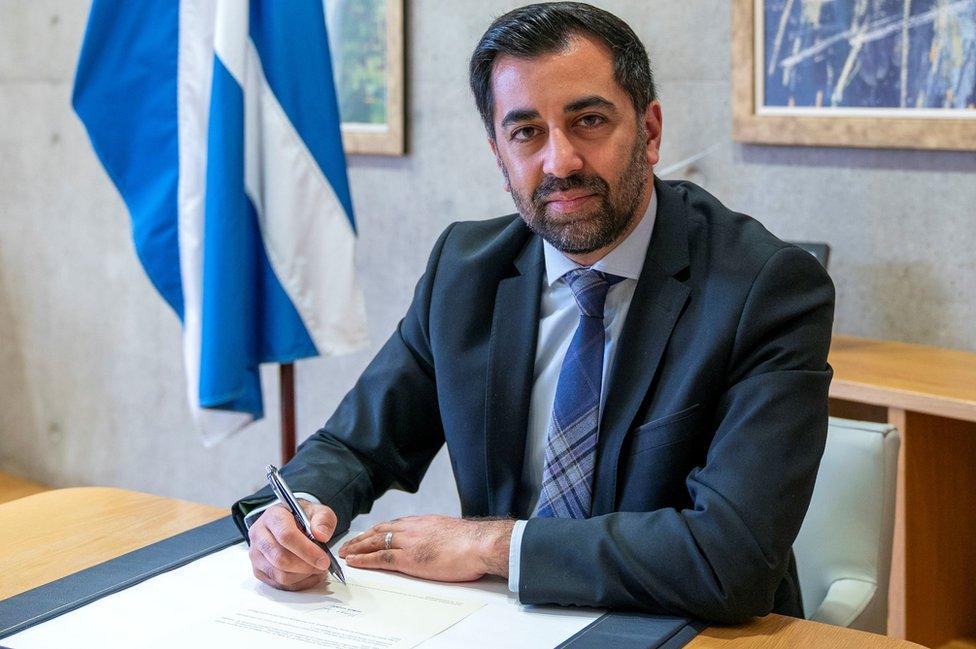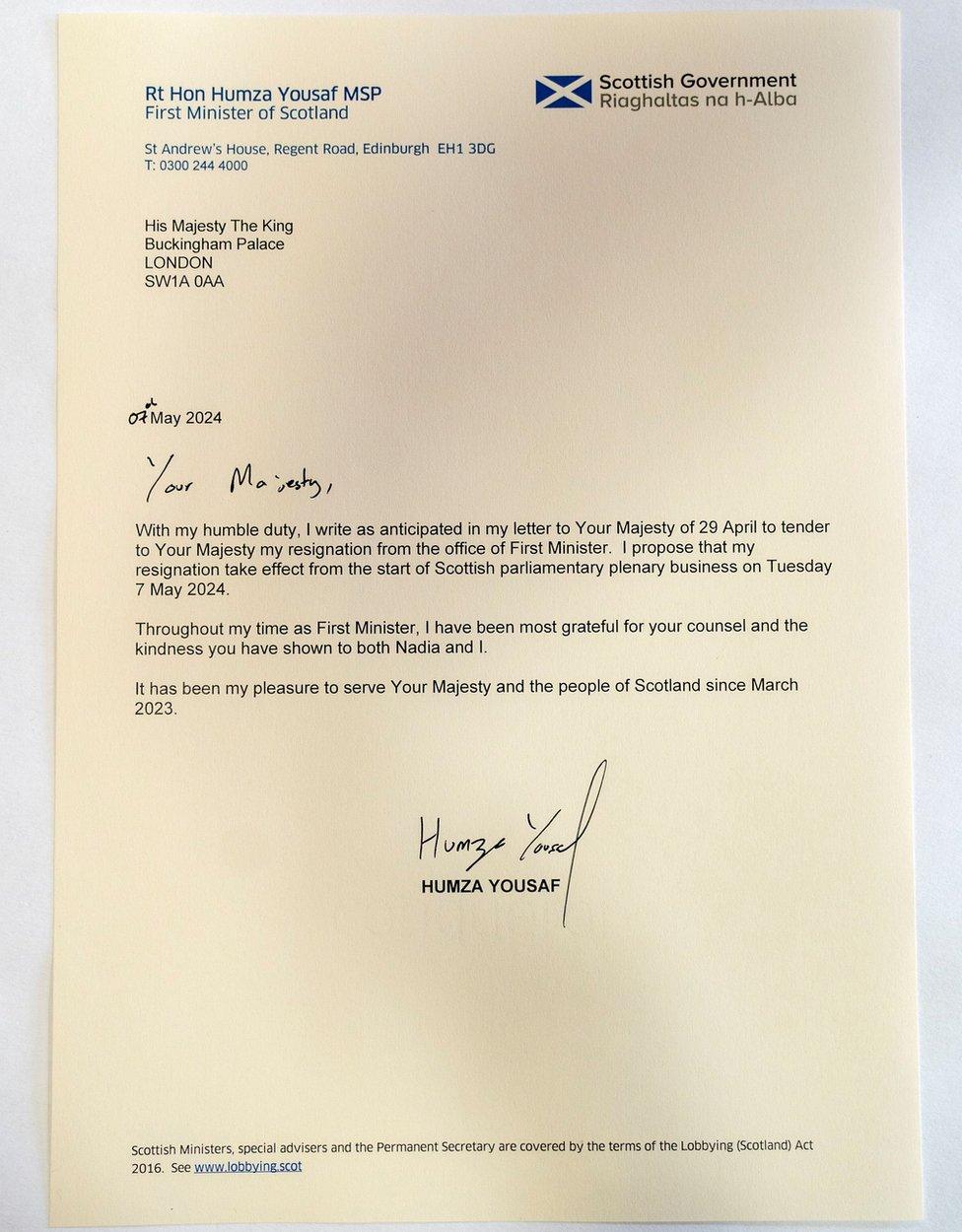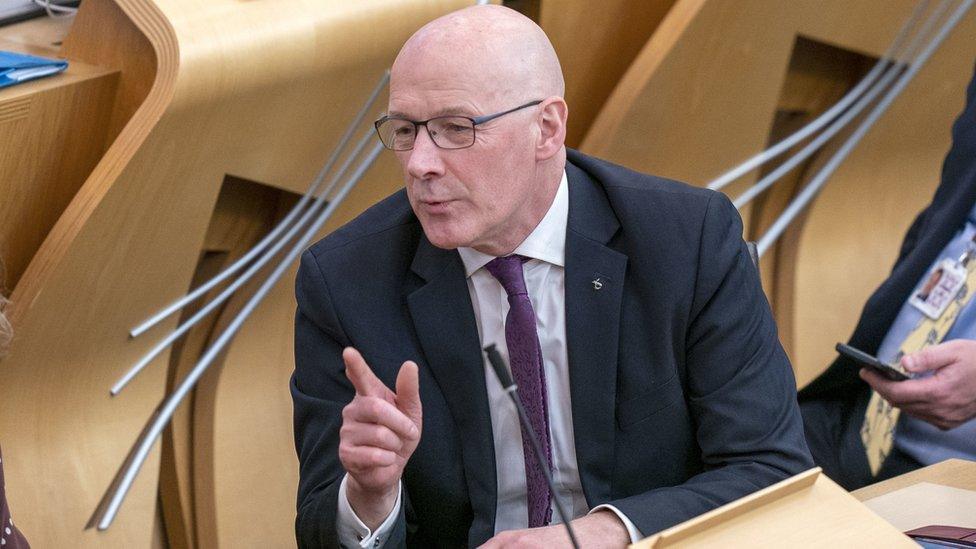Humza Yousaf formally resigns as Scotland's first minister
- Published

Humza Yousaf has signed a letter to the King tendering his resignation as Scotland's first minister after John Swinney was elected as the SNP's new leader.
Mr Swinney, 60, is expected to become first minister later.
The former deputy first minister has pledged to write a "new chapter" in the party's history.
Mr Yousaf last week said he "paid the price" for the way he ended the power-sharing deal with the Scottish Greens.
In his letter to King Charles, the Glasgow Pollok MSP said his resignation would take effect from the start of parliamentary business on Tuesday.
Mr Yousaf said it had been a pleasure to serve the King and the people of Scotland as first minister.
"Throughout my time as first minister, I have been most grateful for your counsel and the kindness you have shown to both Nadia and I," he added in his letter to the King.
Mr Yousaf will make a final speech to MSPs later before they vote to choose Scotland's seventh first minister in 25 years.
After tendering his resignation he described the role of first minister as a "phenomenal honour".
Mr Yousaf said: "As a young Muslim boy, born and raised in Scotland, I could never have dreamt that one day I would have the privilege of leading my country - people who looked like me, were not in positions of political influence, let alone leading governments when I was younger."
The former SNP leader added he was proud of achievements such as the council tax freeze and the removal of peak rail fares.
Mr Yousaf concluded: "From the backbenches of the Scottish parliament, I will continue to champion the rights and the voices of those who are often not heard, be they at home or abroad."

Mr Yousaf was sworn in as Nicola Sturgeon's successor last March after a narrow win over ex-finance secretary Kate Forbes in the SNP leadership contest.
During his first year in the post and he faced challenges ranging from the police investigation into SNP finances to ex-health secretary Michael Matheson's £11,000 data bill.
The Green-led deposit return scheme and the highly protected marine areas scheme were both ditched. The Scottish government also lost a court battle with the UK government over its flagship gender recognition reforms, which led to the legislation being shelved.
Mr Yousaf's leadership came to an end after he scrapped the power-sharing Bute House Agreement with the Scottish Greens, which left the SNP with a minority in parliament.
Facing motions of no confidence in him and his government, Mr Yousaf confirmed he was standing down last Monday.
In his resignation speech, he said he had "clearly underestimated" the hurt he had caused the Greens by ending the agreement.

John Swinney has been elected as the new SNP leader
John Swinney was the only candidate to replace Mr Yousaf as new SNP leader.
The Perthshire North MSP, who previously led the SNP between 2000 and 2004, told supporters on Monday that the party In a had been through a "rough time".
He said he did not intend to reinstate the power-sharing agreement with the Scottish Greens and would aim to lead a "moderate centre-left" minority government.
Mr Swinney is expected to be chosen as Scotland's new first minister later on Tuesday.
He will need to be sworn in at the Court of Session in Edinburgh before officially taking up the post.
After the formalities Mr Swinney can then get on with the business of appointing his cabinet, before going on to to take First Minister's Questions on Thursday.